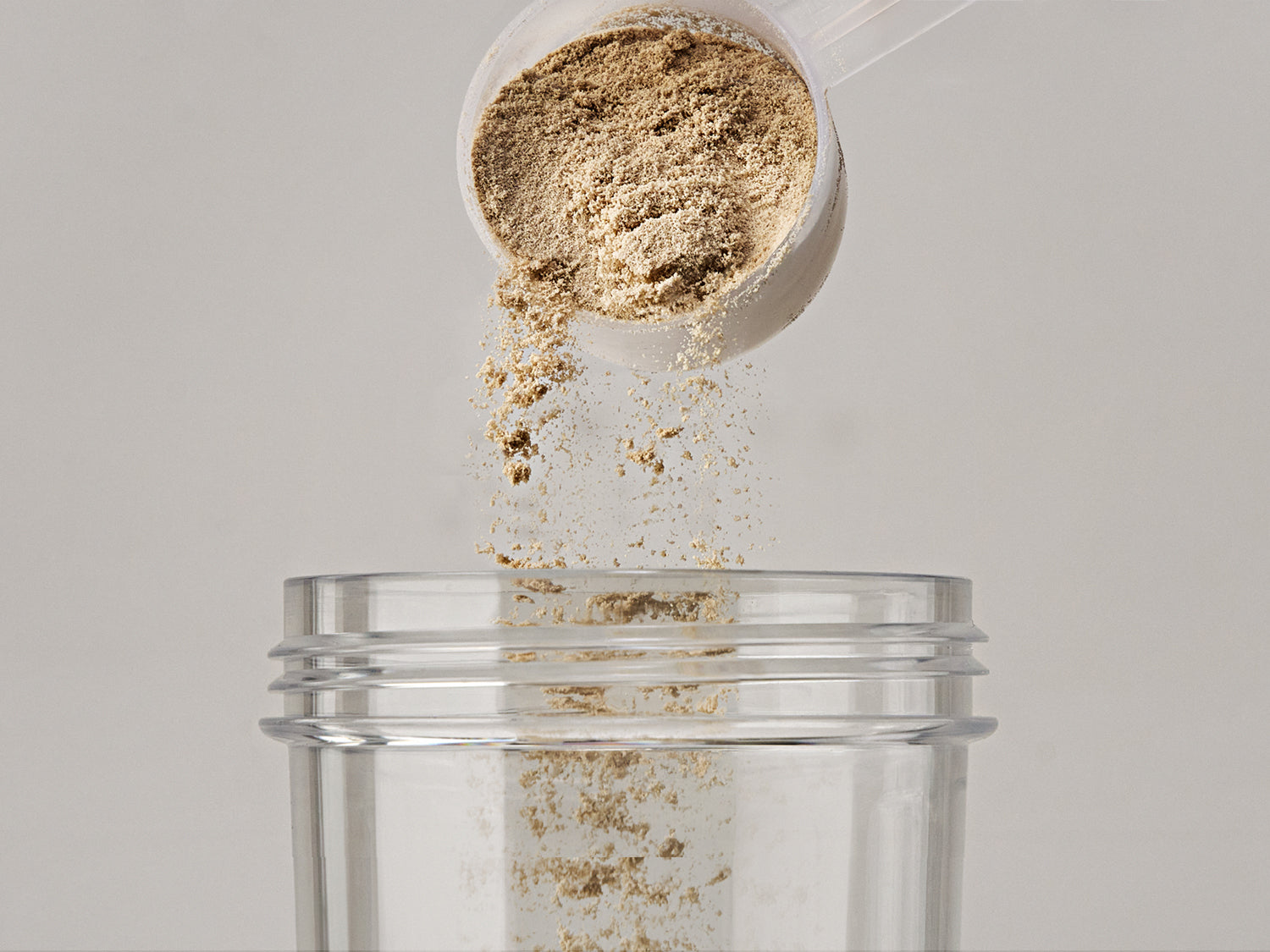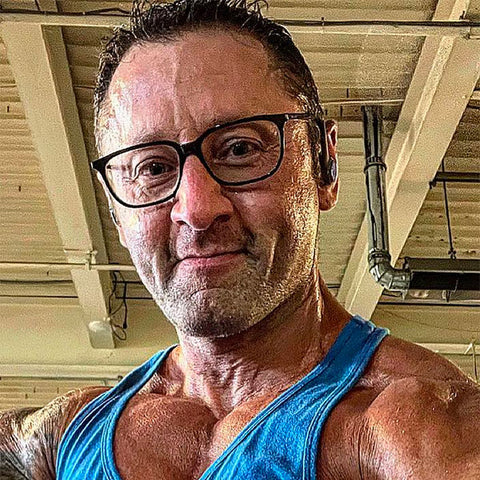I started working full-time in the bodybuilding industry in 1991 and was immediately thrust into the belly of the beast as associate producer of the ESPN® American Muscle TV show. This monthly program featured contest coverage, athlete profiles, star workouts, supplement reviews, cooking, gossip/news, and fashion. Later I transitioned into writing for the bodybuilding magazines, of which there used to be many. I have been around the top athletes in the sport of bodybuilding for over three decades now and have a lot of stories to tell. Although some of them will go with me to my grave, there are plenty more I can share, so let’s get to it!
“Duffy? No chance he’s winning”
I was part of the TV crew that was producing the one-hour ESPN® special of the 1992 NPC USA Championships in Santa Monica, California. This was the show where Flex Wheeler won the Heavyweight and Overall and earned the only Pro card. That’s right, back in those days only one man turned Pro in the whole show, and I mean one, as Men’s Physique and Classic Physique would not exist for many more years. Flex simply dominated the Heavyweight class, which was the heaviest division as the Super Heavyweight class was still eight years away. Even though he would improve dramatically before making his Pro debut the following spring, this final amateur version of Flex was damn near perfect. Anyone who even remotely understood how bodybuilding contests were judged knew once prejudging was over that Flex had the show all wrapped up. About a half hour after judging had finished, a couple other TV crew members and I were watching the playback of the Heavyweight class on a little 13-inch monitor. I was the only one of the group who followed the sport and knew what I was looking at, and I was giving my play-by-play out loud for their edification. “It’s Flex Wheeler, the guy in the yellow trunks,” I explained. “No one is beating this guy. He has it all: mass, shape, condition, even great presentation and posing,” I rattled off, my eyes glued to the little screen.
“What about Chris Duffy?” a voice asked behind me.
“Duffy?” I snorted dismissively, “He sucks! Wide waist, shitty shape, not a chance in hell he’s winning.” I heard someone stomp off in a huff and turned to see who it was. Sure enough, it was Chris Duffy! Chris took second place and would earn his Pro card months later at the Nationals.
Dennis Newman crashes the Mr. Olympia®
I knew Dennis Newman fairly well. We were the same age, and I first met him when I was sent to pick him up from LAX so he could compete in the 1991 Mr. Los Angeles, which he won, along with the NPC California the next year and the NPC USA Overall in 1994. Dennis looked like the bodybuilding version of Superman: movie-star face, perfect shape, structure, and symmetry all at about 5'11" and 250 pounds. Dennis would have been one of the greatest Pros of the ‘90s and beyond, possibly even Mr. Olympia®—but unfortunately, he got leukemia. I watched as he battled cancer, losing his big muscles and beautiful locks of hair, then managed to beat the disease. Dennis was eager to finally begin his pro bodybuilding career, but the powers that be refused to grant him permission to compete by withholding his Pro card. They didn’t want the public-relations nightmare of a young star in his twenties being diagnosed with cancer, beating it, only to get sick again or worse after returning to the stage. To be blunt, such a scenario would only point out the rampant PED use in bodybuilding and the insane health risks required of the athletes. Sadly, we would probably never see Dennis on the Mr. Olympia® stage. Or would we? My boss had featured Dennis on his show and sponsored him since he was a teenage competitor and wasn’t pleased with the IFBB® decision to bar him from competing after he’d beaten cancer. We happened to be doing the ESPN® coverage for the 1996 Mr. Olympia® in Chicago, and my boss orchestrated a dramatic form of protest, unbeknownst to the Olympia® promoters, staff, and judges. The top six took the stage to pose down before the awards: Dorian Yates, Shawn Ray, Kevin Levrone, Flex Wheeler, Paul Dillett, and Ronnie Coleman. Just as they were getting into it, a muscular figure in posing trunks came trotting down the center aisle and jumped onstage to hit some poses among the best six bodybuilders alive at that time. The crowd went bonkers, and Dennis was in his glory, smiling with pure joy as he was at last posing on the Mr. Olympia® stage as he’d dreamed of all those years competing as an amateur. Dorian and the rest were genuinely confused, clearly unsure if this gate-crash was part of the show or not. Dennis leapt offstage and hit some poses in the audience before disappearing and letting the Mr. Olympia® contest proceed. As soon as the awards were handed out and Dorian had won his fifth and penultimate Mr. Olympia® title, a swarm of IFBB® officials, all tough guys from Pittsburgh, Long Island, New York City, and New Jersey, ran backstage with the goal of removing my boss from the TV truck and presumably beating him within an inch of his life. Luckily for him, they couldn’t get the locked door open. Dennis was reinstated as a Pro in 1998 but was never the same again.
This Dorian guy doesn’t look very big
My first Mr. Olympia® contest was in 1991 at the Walt Disney World® Dolphin hotel in Orlando. I was 21 years old. Again, I was working on the one-hour event special my company was producing for ESPN®. It would turn out to be a historic Olympia® as defending seven-time champion Lee Haney would win his eighth title, beating the record of seven wins held by Arnold, and retire at his absolute best at only 31 years of age. But first he had to beat the challengers to his throne, which included Lee Labrada, Shawn Ray, Vince Taylor, and Rich Gaspari. A newer guy from the United Kingdom was making his Olympia® debut after having won the Night of Champions a few months prior: Dorian Yates. I’d seen a few photos of him in the magazines and thought he was pretty good, but I wasn’t certain he would make any impact at his first Olympia® against the aforementioned veterans. I couldn’t wait to see this guy for myself so I could make my own assessment. Backstage, he wore a nylon tracksuit, two shades of blue with white stripes across the chest and on the sleeves. My first impression was that this Yates character wasn’t very big and had been vastly overrated. A threat to Lee? Ha! He’d be lucky to crack the top ten. As the men finished warming up, I made my way out to the ballroom to watch the judging. Imagine my shock at seeing Dorian walk out and suddenly appeared to be twice the size he had seemed to be moments before. At 5'10" and 230 chiseled pounds, he was the first man to ever push Lee as an equal in both mass and condition. When the show was over later that evening. Dorian had taken runner-up and would begin a six-year reign as Mr. Olympia® a year later in Helsinki, Finland. Much later I learned that Dorian called his lucky tracksuit “The Tardis,” a reference to the police phone booth from the long-running British sci-fi series Dr. Who. Dorian said this about it on his Instagram account:
“I wore it to deliberately give an image of a smaller physique to confuse my rivals and people would comment, asking why I wasn’t bigger as they were expecting me to be.
I always left my tracksuit on until the very last minute as I would feel every eye glancing at me from the competitors. When it eventually was time for The Tardis to come off, my gargantuan physique was unveiled for all to see.”
Once I read that, I was happy to learn I was far from the only one who had been fooled by Dorian’s illusion. Of course, it wasn’t much longer before the bodybuilding world all knew exactly how big Dorian really was, and he retired The Tardis, it having served its purpose well.
Ronnie Coleman was no good at basketball
In the summer of 1996, Ronnie Coleman was starting to make a name for himself. He’d won the Canada Pro Cup twice and was working his way up the rankings at the Mr. Olympia®, from not placing at all in 1992 to 15th in 1994 and just out of the top ten in 11th in 1995. Ronnie was in prep for the 1996 Mr. Olympia® when he flew from Texas to Los Angeles for photo shoots. At the ESPN® American Muscle show, we had also booked a day to shoot video of Ronnie for a Star Profile segment. I would direct that day, and we started with workout footage at the legendary and long-gone World Gym® on Main Street in Venice. I was blown away at Ronnie’s thick, full muscles and even more so at how easily he was handling weights that would have crushed most bodybuilders. With the workout footage done, Ronnie changed into his police officer’s uniform from his department in Arlington, Texas. The idea here was to let Ronnie stroll down the Venice Beach® boardwalk, and we would capture the shocked reactions from passerby. It goes without saying that no police officer ever filled out a uniform like the man who would eventually tie Lee Haney’s record of eight Mr. Olympia® wins. His chest stuck out a foot in front of him, his back was as wide as a doorway, and legit 23-inch arms burst out of his short sleeves. As expected, Ronnie drew quite a few amazed reactions and comments. It wasn’t until we got to the basketball courts that things took a different turn. These are the Venice Beach® courts made famous in the film White Men Can’t Jump. The young men who ruled these courts took their games very seriously, and fights were commonplace. As we passed the court, the players couldn’t help but notice 275 pounds of Ronnie in a cop outfit and paused their game. One of them invited Ronnie over, throwing him the ball and entreating him to take some free throw shots at the hoop. Ever the good sport, Ronnie stood on the free throw line, dribbled a moment, and took his first shot. It bounced off the backboard right back at him. He tried again, and I heard snickers from the ballplayers as he once again missed. Ronnie tried twice more but could not get the ball through the hoop. Now the kids were laughing out loud. As we walked away, Ronnie muttered, “Man, football was my game anyway.”





